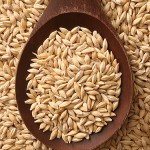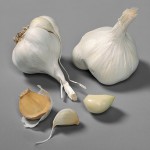The high price of some prescription drugs is forcing many Americans to look toward cheaper alternative medicines to alleviate their ailments.
 But while the sales of popular dietary supplements and herbal remedies remain strong in the current economy, UConn pharmacists caution that such products often escape Federal Drug Administration review and that their benefits may be grossly exaggerated or worse, potentially dangerous to a person’s health.
But while the sales of popular dietary supplements and herbal remedies remain strong in the current economy, UConn pharmacists caution that such products often escape Federal Drug Administration review and that their benefits may be grossly exaggerated or worse, potentially dangerous to a person’s health.
Researchers with the UConn/Hartford Hospital Evidence-based Practice Center recently took a closer look at five popular dietary supplements and found mixed results in regards to their health benefits.
The group looked at the health benefits of consuming barley, cinnamon, garlic, glucomannan, and almonds. Here is a summary of their findings:
- Almonds: Eating a handful of almonds a day will reduce total cholesterol concentrations but does not appear to significantly affect LDL (bad cholesterol) levels or triglyceride levels, each of which is associated with the development or progression of heart disease. Eating almonds solely for their cholesterol-lowering effects is not supported in the available medical literature at this time, and actually may reduce the level of HDL (good cholesterol) in the bloodstream.
 Barley: Adding hearty amounts of barley fiber to your diet is good for you. Barley helps significantly lower low-density lipoprotein (LDL) cholesterol, the bad cholesterol, and triglycerides. It does appear to impact high-density lipoprotein (HDL) cholesterol, the good cholesterol.
Barley: Adding hearty amounts of barley fiber to your diet is good for you. Barley helps significantly lower low-density lipoprotein (LDL) cholesterol, the bad cholesterol, and triglycerides. It does appear to impact high-density lipoprotein (HDL) cholesterol, the good cholesterol.- Cinnamon: Including cinnamon in your diet does not appear to have significant beneficial effects for patients with type 1 or type 2 diabetes. Analysis showed patients consuming between 1 and 6 grams of powdered cinnamon as part of their daily diet did not demonstrate clinically significant changes compared to subjects who took a placebo.
- Garlic and high blood pressure: Garlic lowers blood pressure in patients with high blood pressure but does not appear to impact those with normal blood pressure. In hypertensive patients – those with systolic blood pressure (SBP) greater than 140 mm Hg – SBP was lowered an average of 16 mm Hg and diastolic blood pressure was lowered an average of 9 mm Hg. Garlic’s health benefits, however, are not as beneficial as standard antihypertensives such as calcium-channel blockers and angiotensin-converting enzyme (ACE) inhibitors, and patients should not replace standard treatments with garlic. Limited clinical trials also did not appear to adequately address garlic’s potential adverse effects, such as its interaction with aspirin and other agents used to prevent blood clots. Further study is necessary.
 Garlic and cholesterol: Consuming garlic reduces total cholesterol to a modest extent, due mostly to a modest reduction of triglycerides, but shows no appreciable lowering of LDL (bad cholesterol) or elevation of HDL (good cholesterol). Patients taking Kwai® brand garlic, without dietary modification or counseling, appeared to have a greater lowering of triglyceride levels than those taking other garlic powder formulations, garlic oil, and aged extracts. If garlic significantly reduces triglyceride levels in patients with elevated triglycerides without elevating bad cholesterol levels and reacts well with other standard cholesterol-lowering treatments like niacin, it could be an important adjunctive therapy for those who may not be able to tolerate standard therapies or who seek natural therapies. More study in this area is warranted.
Garlic and cholesterol: Consuming garlic reduces total cholesterol to a modest extent, due mostly to a modest reduction of triglycerides, but shows no appreciable lowering of LDL (bad cholesterol) or elevation of HDL (good cholesterol). Patients taking Kwai® brand garlic, without dietary modification or counseling, appeared to have a greater lowering of triglyceride levels than those taking other garlic powder formulations, garlic oil, and aged extracts. If garlic significantly reduces triglyceride levels in patients with elevated triglycerides without elevating bad cholesterol levels and reacts well with other standard cholesterol-lowering treatments like niacin, it could be an important adjunctive therapy for those who may not be able to tolerate standard therapies or who seek natural therapies. More study in this area is warranted.- Glucomannan – Glucomannan is a soluble fiber available in numerous over the counter products such as Lipozene®. Like other soluble fibers such as oats, guar gum, and pectin, glucomannan has been touted as having beneficial effects on patients at risk of coronary heart disease. Glucomannan did appear to significantly lower total cholesterol, LDL or bad cholesterol levels, triglycerides, and body weight. But it did not significantly raise HDL or good cholesterol or lower blood pressure in patients with hypertension. Glucomannan’s positive effects may not be as pronounced in pediatric patients, patients on certain modified diets, and those with impaired glucose metabolism.
The researchers’ findings were based on a systematic review of existing research literature, which was analyzed and evaluated to weed out questionable or marginal findings and to highlight significant findings and trends. The findings have been published in various academic journals over the past year.
“This gives us a snapshot evaluation at this time of the best quality literature that is out there,” says C. Michael White, a UConn professor of pharmacy practice and director of the Evidence-based Practice Center in Hartford.
The Evidence-based Practice Center conducted meta-analyses on the different products as a public service, and was not paid by any commercial entity to perform the studies on behalf of a certain product.
“This is something we do because we think it is very important to do it,” says White. “No one is doing it, because there is no money in it.”
White says it is important to provide people who may hold common health perceptions about cinnamon or almonds with scientific-based analysis, so they are better informed about what they are consuming and how it may affect their bodies.
Craig Coleman, an associate professor of pharmacy practice at UConn and co-director of the Evidence-based Practice Center, served as the primary investigator for several of the studies. He says, “While barley, garlic, and glucomannan may provide some benefits, there is no credible evidence when you pool the studies together that cinnamon has beneficial lipid properties or significant impact on glucose control.”
Olivia Phung, a UConn research fellow working with White in the Evidence-Based Practice Center, also participated in the research. “Eating almonds lowers total cholesterol,” Phung says. “But in doing that, it also lowers your high-density lipoprotein or your good cholesterol.”
Adds White, “The average citizen doesn’t know which products are good, which products are bad, and which ones don’t do anything. Many of these products are not tested and reviewed by the federal Food and Drug Administration. It’s like the wild, wild West. Over time, we hope to create a body of work that consumers can rely on to make good choices about their personal health.”




